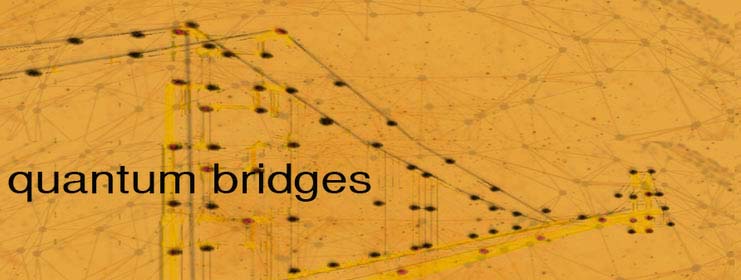Understanding PMAs in Terms of the Law?
A private membership association can be created and beneficially utilized in any country that has common law as it’s foundational guidance and that law has given its citizens the freedom or right to associate. In the USA, for example, the U.S. Constitution’s 1st Amendment assures the right to assemble which was extended in a later ruling to include the right to associate.
Common Law originated in medieval England and then became the foundation of law throughout the British Empire and other countries that were influenced in some formative way by England. Common Law is also known as case law or judge-made law because it is a body of law that grew and evolved over time as designated individuals (judges) made rulings that provided guidance and direction for the society. Specifically it is private law that governs relationships between individuals and generally reflects the accepted values and practices of a society. It is an accumulation of knowledge over many hundreds of years that continues to aid the members of the society in resolving their differences, making equitable agreements and dealing fairly with situations of harm.
Statutory Law is not really law but rules or regulations created by some legislative body that are designed to clarify and extend points of law and address situations that are not covered in the body of Common Law. It governs the relationship between individuals (citizens and companies) and the government. Whereas statutes or government-made ‘laws’ at their best are intended to keep citizens safe and ensure a smoothly running and functional everyday life, at their worst they can be oppressive and controlling. Certain sectors may benefit from a legislation and others be penalized.
Licensing, taxation, insurance, litigation and fines arising from statutes can also drain resources away from citizens whose lives are creating value in the society and in turn fund an ever expanding, run away government.
How does a PMA Operate?
PMAs are self governed and regulated so the membership determines the guidelines and rules for the association. Any dissatisfaction or disputes members might have are settled within the association, thus they are safe from frivolous litigation and exempt from carrying the burden of outrageous malpractice insurance premiums.
In general an association is outside the jurisdiction and authority of all state and federal agencies and law enforcement authorities. At the same time it is important to know that this right is not absolute. An association operating in the realm of creating a clear and present danger of substantive evil would trigger an investigation.
However within the intent to do good, a Private Membership Association of private members functions legally and safely within the private domain. This right is protected by numerous favorable U.S. Supreme Court decisions and there have been no negative decisions on record to this date.
Benefits of a Private Healthcare Membership Association
1.Privacy and Self Governance – A PMA provides extraordinary privacy protection in all areas of business and finance. PMAs are self governed and regulated so the membership determines the guidelines and rules for the association (Articles of Association). Any dissatisfaction or disputes members might have are settled within the association.
2. Safe From Litigation and High Insurance Premiums
Practices and services that would be illegal within the public jurisdiction and authority of State and Federal statutory agencies are completely lawful and protected within a private association. As a result, PMAs are safe from frivolous litigation and exempt from carrying the burden of outrageous malpractice insurance premiums. This results in lower costs for health and wellness services.
3. Offering Services Outside Professional Licensure
Within the PMA, even if one is a licensed healthcare provider, it is possible to offer holistic or alternative health and wellness techniques and modalities outside of parameters of the license within the PMA setting, without fear of discrimination or sanctions by the regulatory agencies.
4. Safe from Regulatory Agencies
In addition, all bona fide and competent practitioners, even if they are not licensed, may practice within the PMA. Many healthcare practitioners and companies who provide natural remedies are being harassed and investigated by licensing agencies, law enforcement agencies and attorney generals.
These entities target individuals, specific practices and businesses in the name of “protecting of the public” but often the real motivation is often much different. Instead, protecting special interest groups like professional organizations, testing and licensing agencies or the drug companies may be the intent. Sustaining the existence and power of the regulatory and enforcement agencies through license fees and fines is also paramount.
Who Can Join a PMA?
Anyone who agrees with the tenants of the PMA and wishes to join will be welcome. As members. they are then free to benefit from the offerings that other association selected members provide to the membership at large.
Becoming a Member Service Provider?
First you join QBHA as a member. If you have a skill that you think may be in alignment with the association and would benefit the members, then you can explore the possibility of becoming a member service provider by getting in touch through the contact page on this website.
Quantum Bridges Health Alliance screens and allows only competent and experienced member practitioners to actively present and promote their areas of expertise within the association. As the membership grows so does, potentially, the scope of the member offered benefits and resources.
All bona fide and competent practitioners may potentially practice within the PMA whether they are licensed in the public domain or not. Within the PMA, even if one is a licensed healthcare provider, it is possible for them to offer holistic or alternative health and wellness techniques and modalities outside of parameters of their license within the PMA setting, without fear of discrimination or sanctions by the regulatory agencies. Private Membership Associations offer extraordinary privacy protection.
